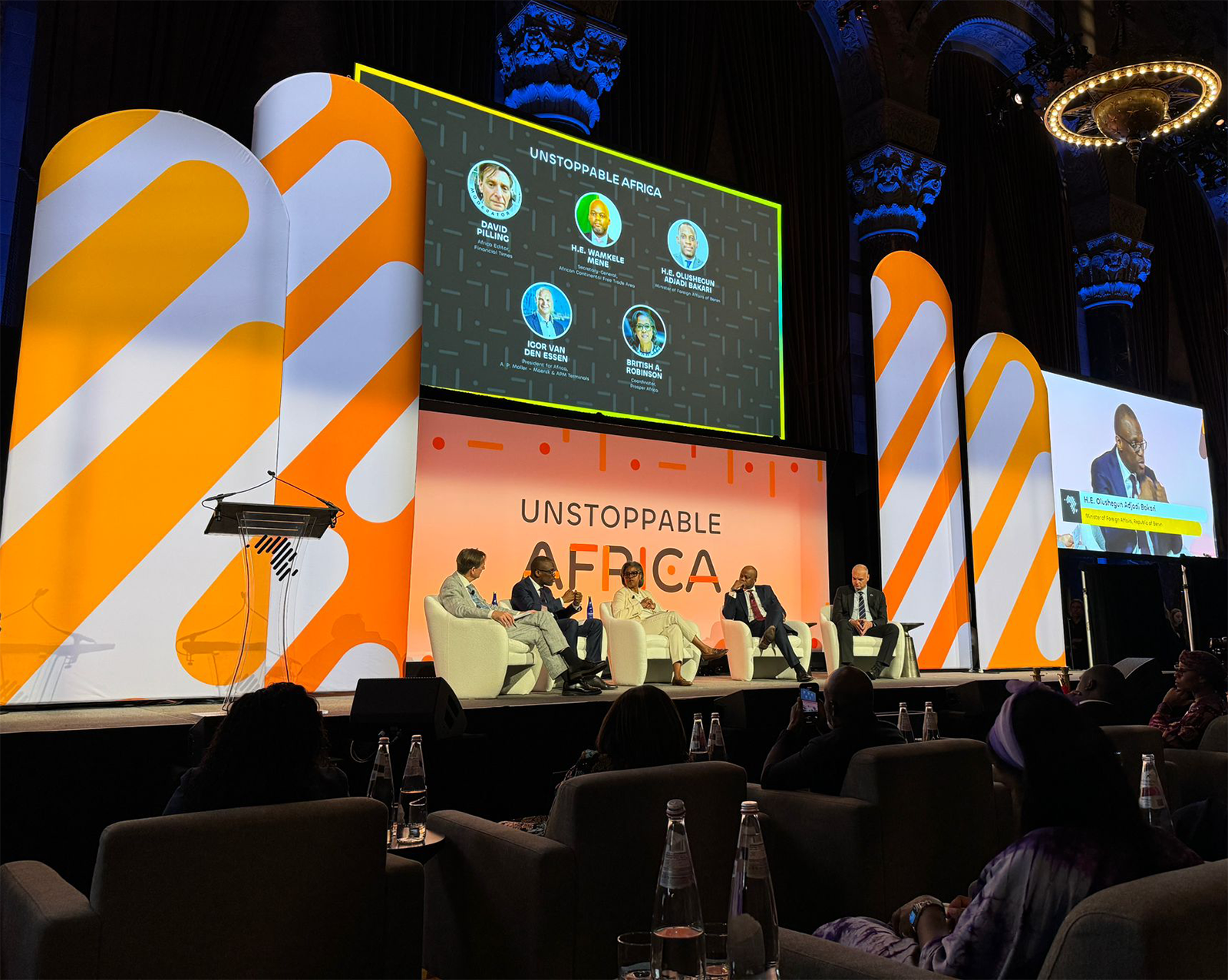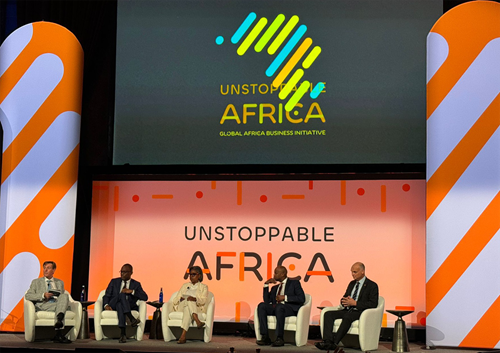
30/09/24
Blog: Solutions for African trade: creating jobs and careers for the future
— Igor van der Essen, Regional Managing Director, Africa and Europe
Be in solution mode: that was the guiding principle at the UN Global African Business Initiative (GABI) that I had the pleasure to participate in this week in New York. The key purpose of the Forum was to bring together influential leaders from the private and public sectors to advance Africa’s role in shaping global business solutions.
To be in solution mode resonates very well with the way we work in APM Terminals – both in global operations and in terminals we operate in Africa. With our people at the heart of our operations, in 60 locations so far around the world, we tirelessly work on processes that can improve results in efficiency, sustainability and safety. And we can see how these efforts and continuous improvements of operations influence the communities around the ports and terminals and enhance the opportunities for import and export and thereby the creation of new businesses and jobs.
In Nigeria, where we operate in Apapa and Onne, we directly employ 2,500 people and indirectly support 65,000 jobs. Many of these jobs are linked to small- and medium-sized enterprises that rely on efficient port services to export goods such as cocoa, rubber, and textiles.
Moving from theory to execution to foster inclusive growth
 The public-private partnership is vital to a company like APM Terminals. Therefore, it was also fruitful to be a part of the UN GABI and to engage with key stakeholders on how logistics and infrastructure development can foster inclusive growth and poverty reduction through regional integration. To me, it was very telling that the header during the conference was Unstoppable Africa, because you could feel the drive and determination in the room. And as a participant, it was encouraging to see the conversation moving from theoretical framework to execution.
The public-private partnership is vital to a company like APM Terminals. Therefore, it was also fruitful to be a part of the UN GABI and to engage with key stakeholders on how logistics and infrastructure development can foster inclusive growth and poverty reduction through regional integration. To me, it was very telling that the header during the conference was Unstoppable Africa, because you could feel the drive and determination in the room. And as a participant, it was encouraging to see the conversation moving from theoretical framework to execution.
The UN GABI brings the private sector to the centre of the discussions and the solutions, to position Africa for future growth opportunities – and it is key to us that we can play a role together. Governments alone cannot close the infrastructure gap; the private sector must play a significant role in driving investments and bringing innovation to port and logistics services.
APM Terminals has successfully partnered with governments and development finance institutions to build and expand critical port infrastructure in countries like Côte d’Ivoire, Ghana and Morocco. These partnerships not only reduce financial risks for investors but also ensure that projects meet the specific needs of the local and regional economy.
For our terminals in Nigeria, public-private partnerships are critical to drive sustainable growth. This can be when working onport asset modernisation, digitalisation of supply chains and working closely with customs and other government agencies to ensure the safety and security for our people, customers and the country.
APM Terminals aims for more public-private partnerships
 We are ready to collaborate across the continent to explore opportunities for public-private partnerships that can enable innovation and lift trade flows to new levels. By investing in the modernisation and expansion of seaports across the continent, we are helping to create the infrastructure necessary for the successful movement of goods across borders.
We are ready to collaborate across the continent to explore opportunities for public-private partnerships that can enable innovation and lift trade flows to new levels. By investing in the modernisation and expansion of seaports across the continent, we are helping to create the infrastructure necessary for the successful movement of goods across borders.
To harvest the full benefit of the transformation, all sectors need to be included in the growth strategy. This is why APM Terminals also has a special focus on women and young entrepreneurs comitting to ensure that our operations support inclusive growth. In Côte d’Ivoire, we have launched programs that provide preferential access to logistics services for women traders and small businesses. By lowering costs for port handling and providing better connectivity, we are helping to level the playing field for underrepresented groups.
We also provide training and development programs for local workers, with a focus on empowering women to take up leadership positions in logistics and port operations. This not only strengthens the local workforce but also contributes to a more inclusive economy.
As I travelled back to the Hague, it struck me that the global attention for Africa in vibrant New York City during the week of the UN General Assembly also indicates that business realises the importance of including the continent in their strategic plans. Besides the sheer necessity of doing just that, the best take-away for me was the commitment to the inclusion of woman, youth and local entrepreneurs. This gives me confidence in Africa's future.